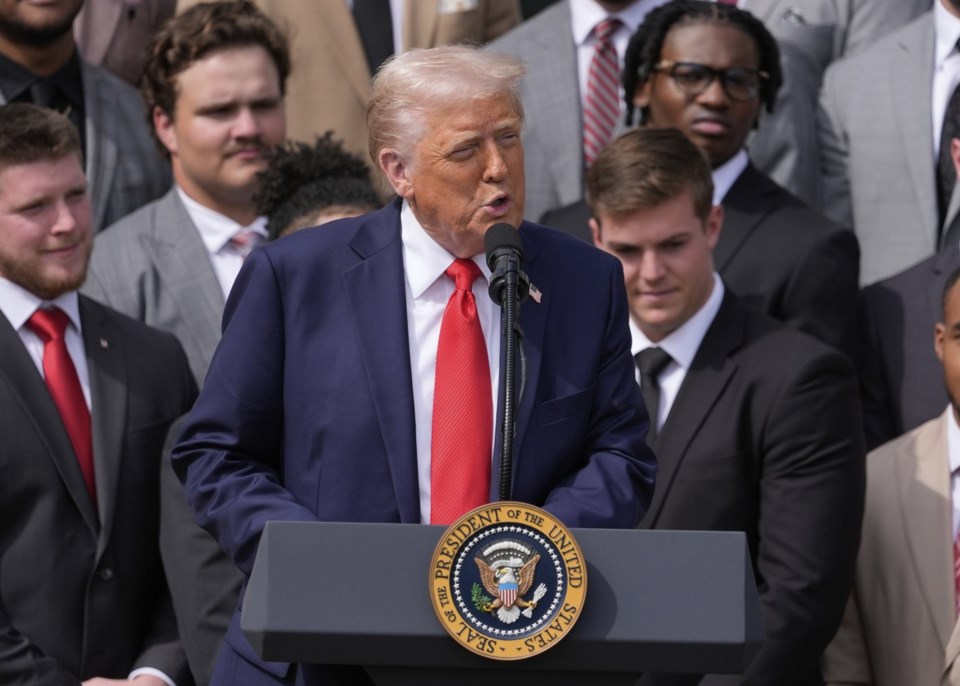WASHINGTON — President Donald Trump on Monday floated another possible pause on automobile tariffs to give companies time to set up U.S. supply chains, bringing more uncertainty to the deeply integrated North American vehicle industry.
"I'm looking at something to help some of the car companies where they are switching to parts that were made in Canada, Mexico and other places," Trump said Monday in the Oval Office when asked about short-lived product exemptions.
"And they need a little bit of time because they are going to make them here. But they need a little bit of time."
Trump put 25 per cent tariffs on all imports of automobiles to the United States on April 3 but made a partial carveout for vehicles under the Canada-U.S.-Mexico Agreement on trade, known as CUSMA.
The continental trade pact was negotiated during the first Trump administration and included protections for the automobile industry. Experts say Trump's tariffs undermine the trade pact.
A White House official previously confirmed that cars made under CUSMA rules of origin were hit with duties until a system is set up to gauge how much of each finished car is made with American components. When that system is in place, tariffs will only hit the value of non-American parts.
Even with exemptions for some parts of cars under CUSMA, the duties have rattled the North American automobile sector. Vehicles cross borders multiple times before they are a finished product. Duties on parts set to take effect no later than May 3.
The auto industry is also being hammered by the 25 per cent steel and aluminum tariffs, as well as 145 per cent tariffs on Chinese imports.
The Big Three — Ford, General Motors and Stellantis — had been lobbying the administration for weeks. Trump paused his fentanyl-related economywide tariffs on Canada and Mexico for a month in February, citing conversations with the vehicle manufacturing companies.
When Trump announced the automobile tariffs he said they would be permanent but Monday's comments show the president may do another reversal of his ever-changing trade agenda.
"I don’t change my mind, but I’m flexible," Trump said Monday.
The auto tariff turn adds to mounting uncertainty in markets around the world about Trump's plan to realign global trade.
Trump launched his global "reciprocal" tariffs earlier this month, only to walk back the most devastating duties hours later. A 10 per cent universal import tariff remains in place for most countries, as well as duties on specific sectors like aluminum, steel and automobiles.
Trump also escalated his trade war with China, which responded with 125 per cent retaliatory tariffs on U.S. products. The Trump administration on Friday temporarily exempted electronics from some of those tariffs.
The president has also suggested he will implement specific tariffs for pharmaceuticals, lumber and semiconductors soon.
This report by The Canadian Press was first published April 14, 2025.
Kelly Geraldine Malone, The Canadian Press

